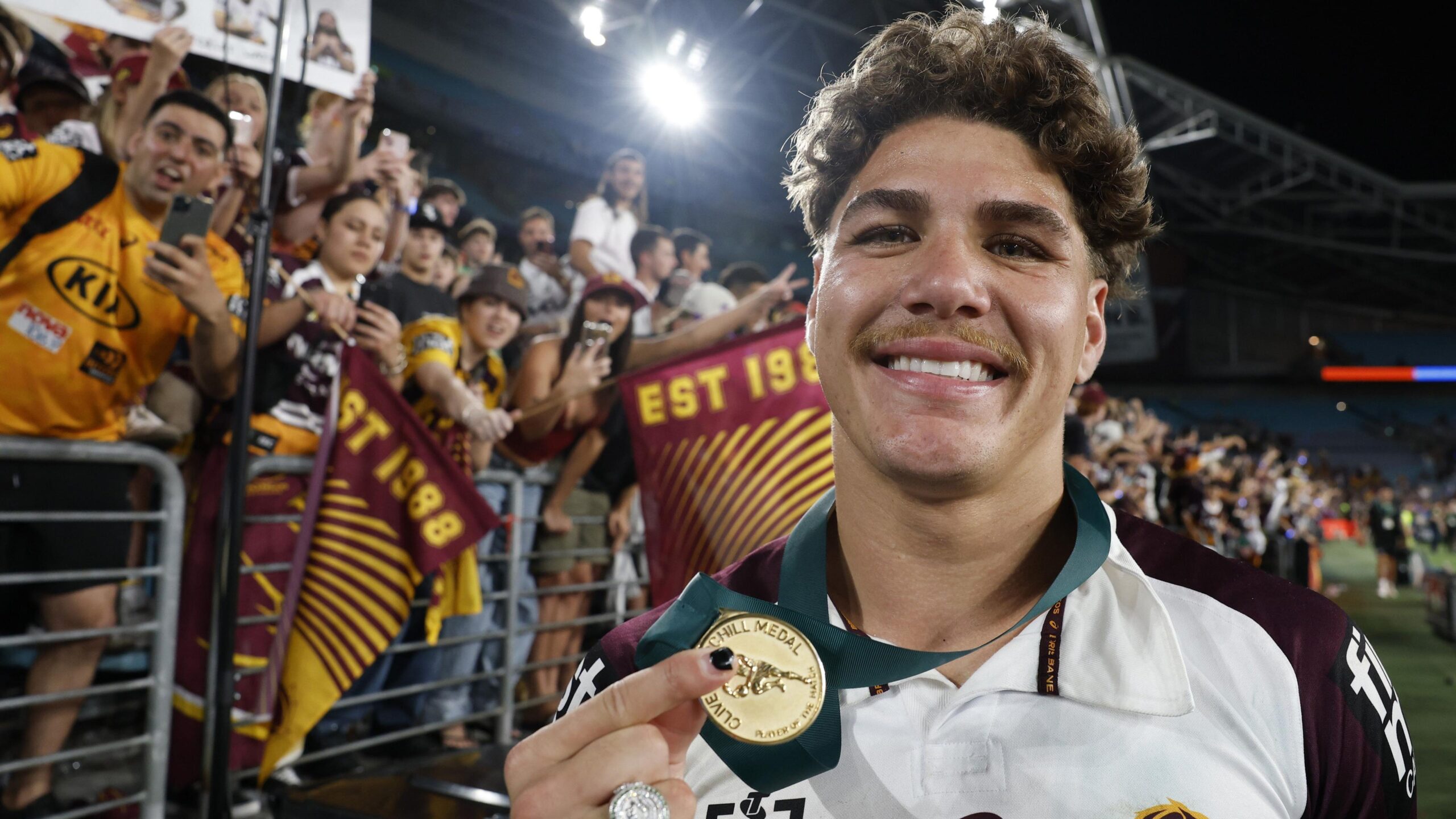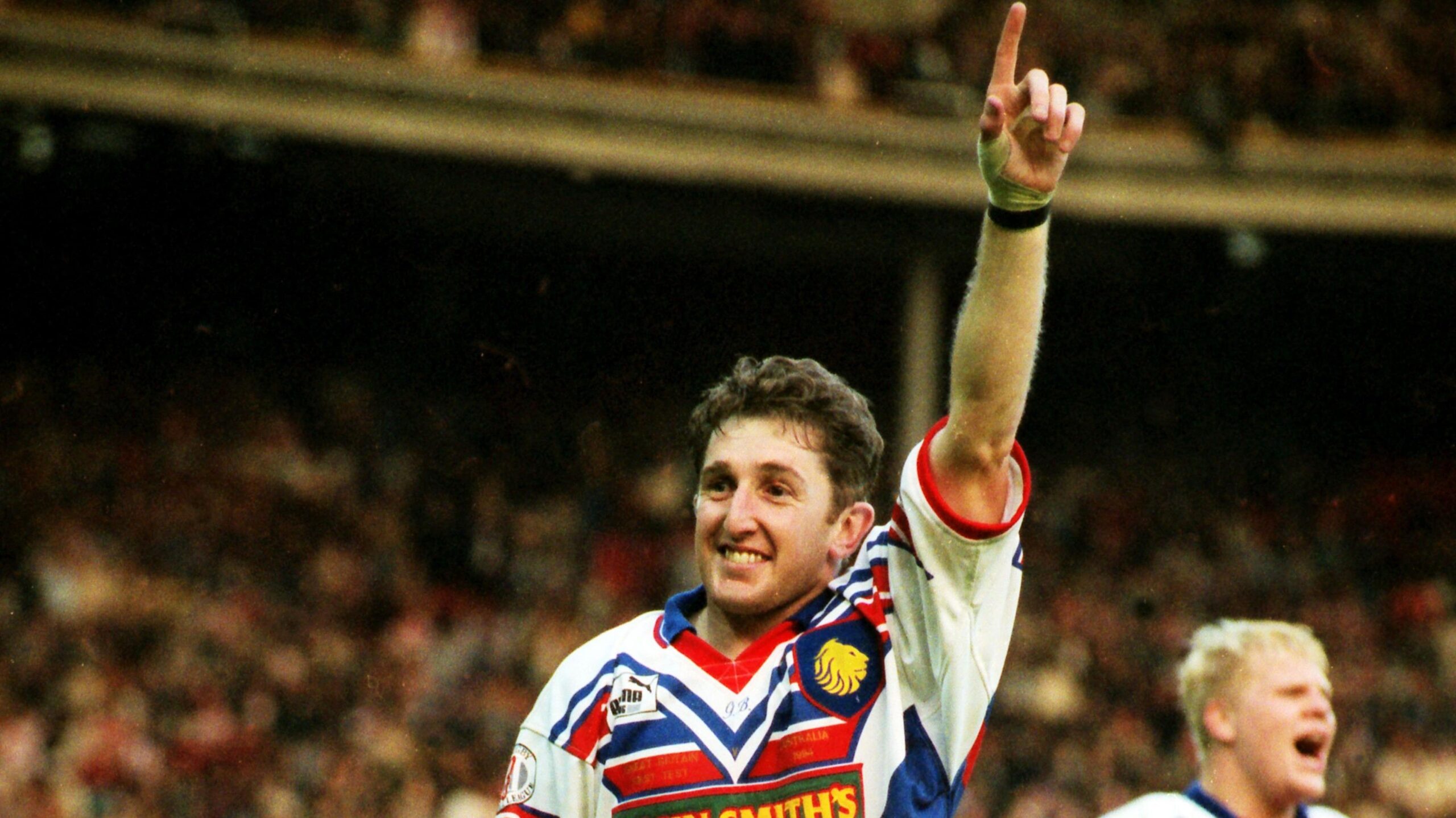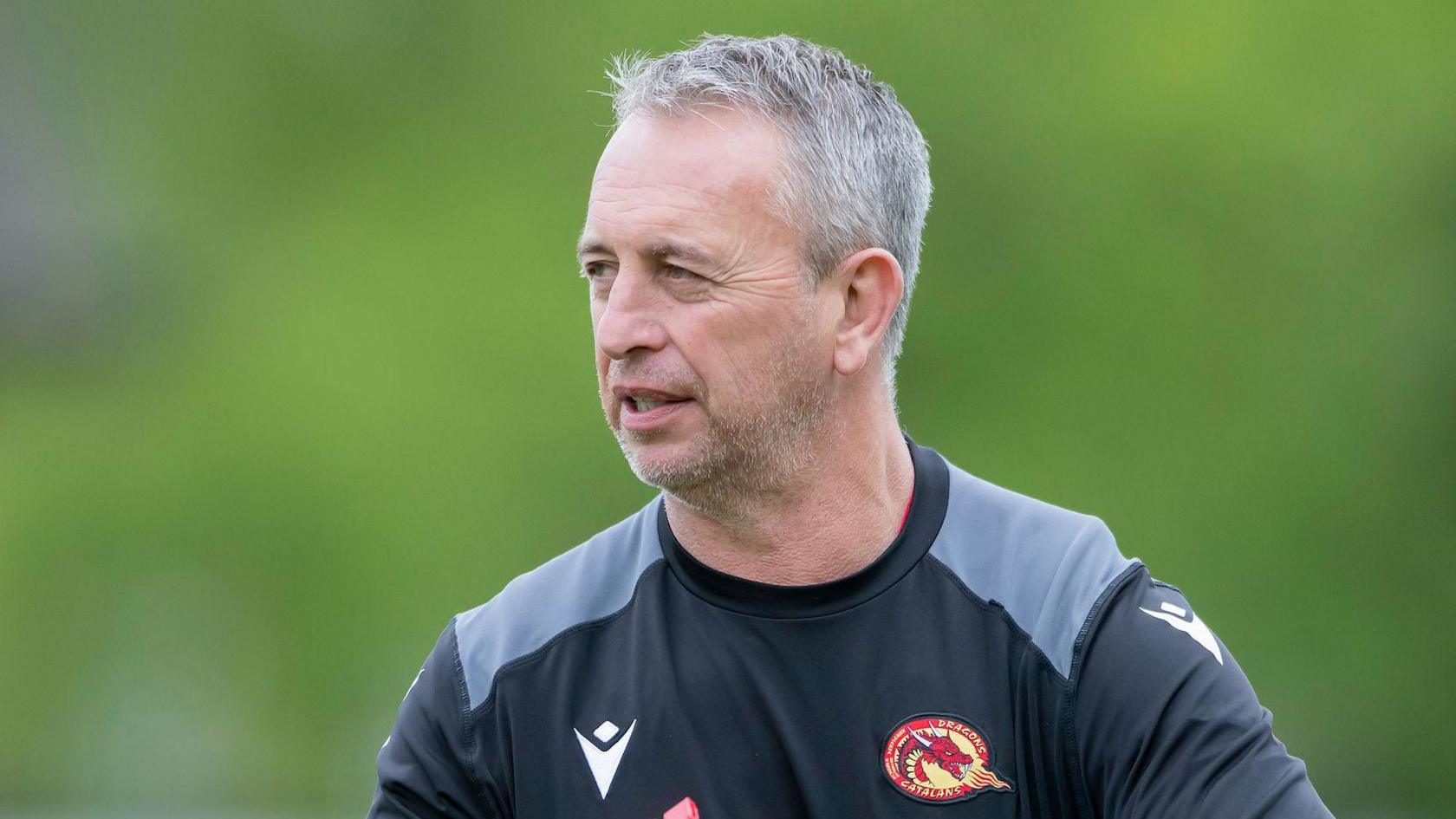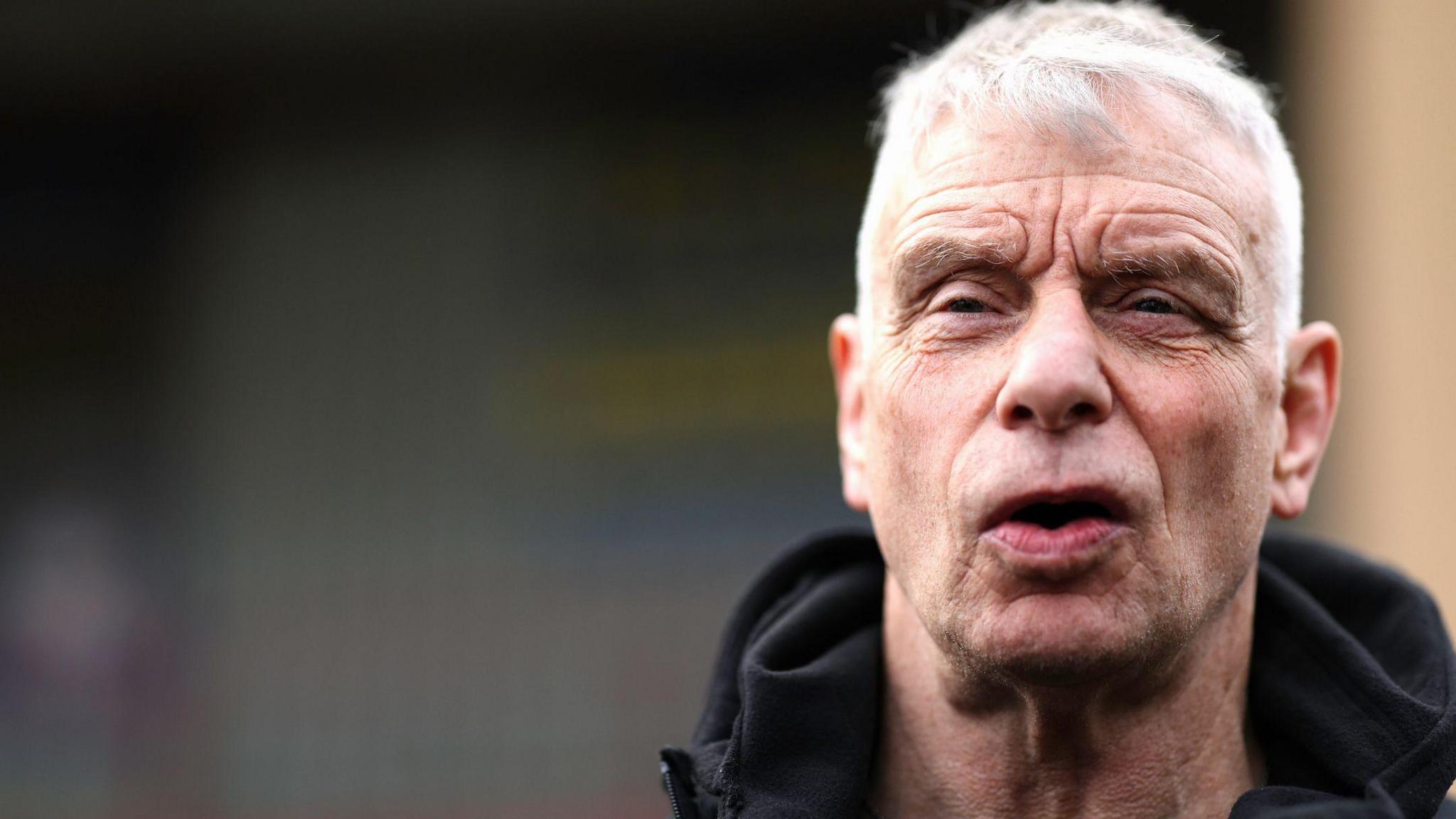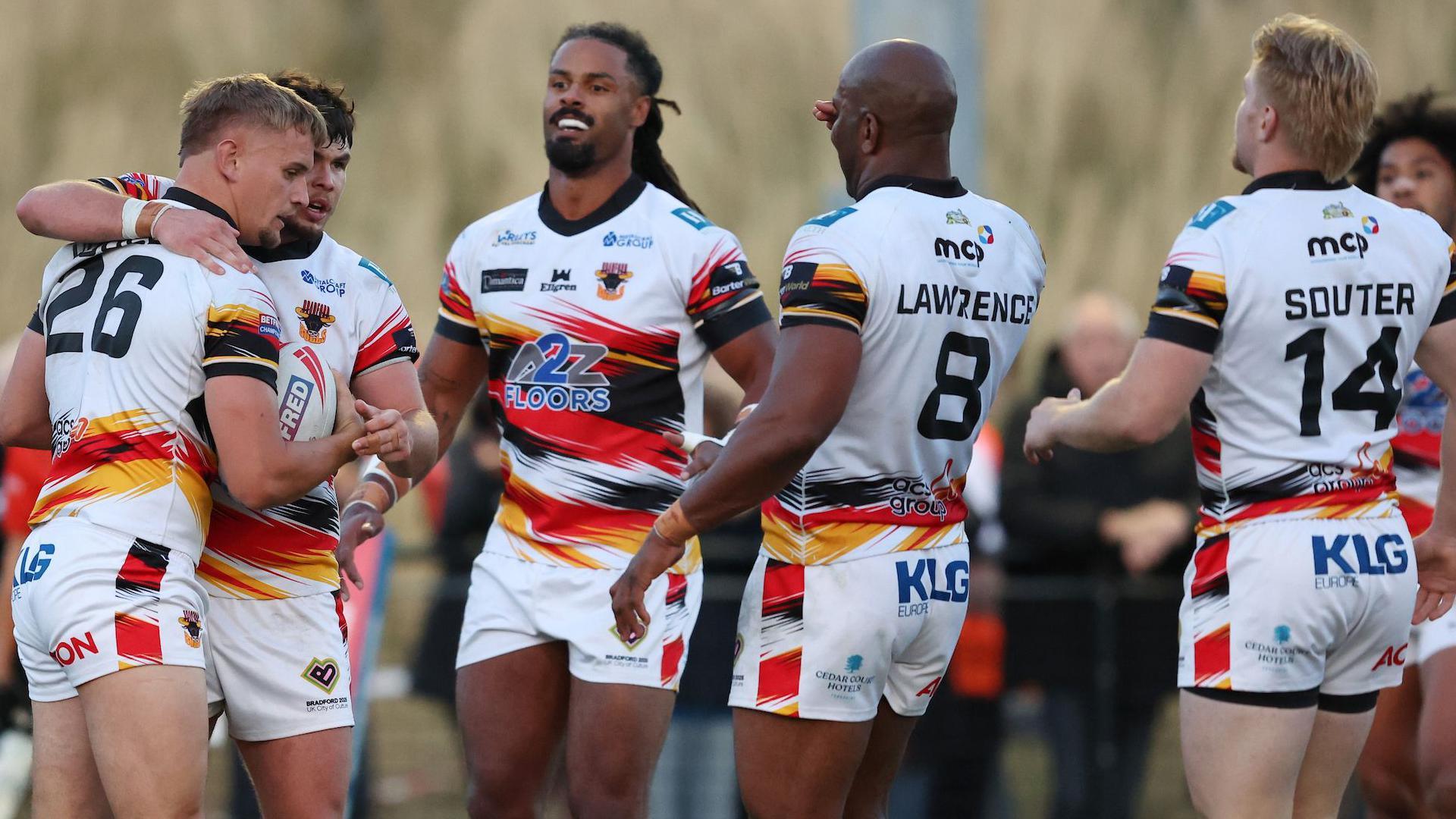-
36 minutes ago
The Rugby League Ashes returns for the first time since 2003 as England take on world champions Australia in a best-of-three Test series that begins at Wembley this Saturday.
They meet for the first time since the 2017 Rugby League World Cup final, which Australia won 6-0 in a tense affair in Brisbane.
After Wembley, the teams move on to the second Test at Everton’s new Hill Dickinson Stadium on 1 November before rounding off at Leeds Rhinos’ AMT Headingley Stadium on 8 November.
All three matches are 14:30 kick-offs and will be live on BBC One.
How long has it been called the Ashes?
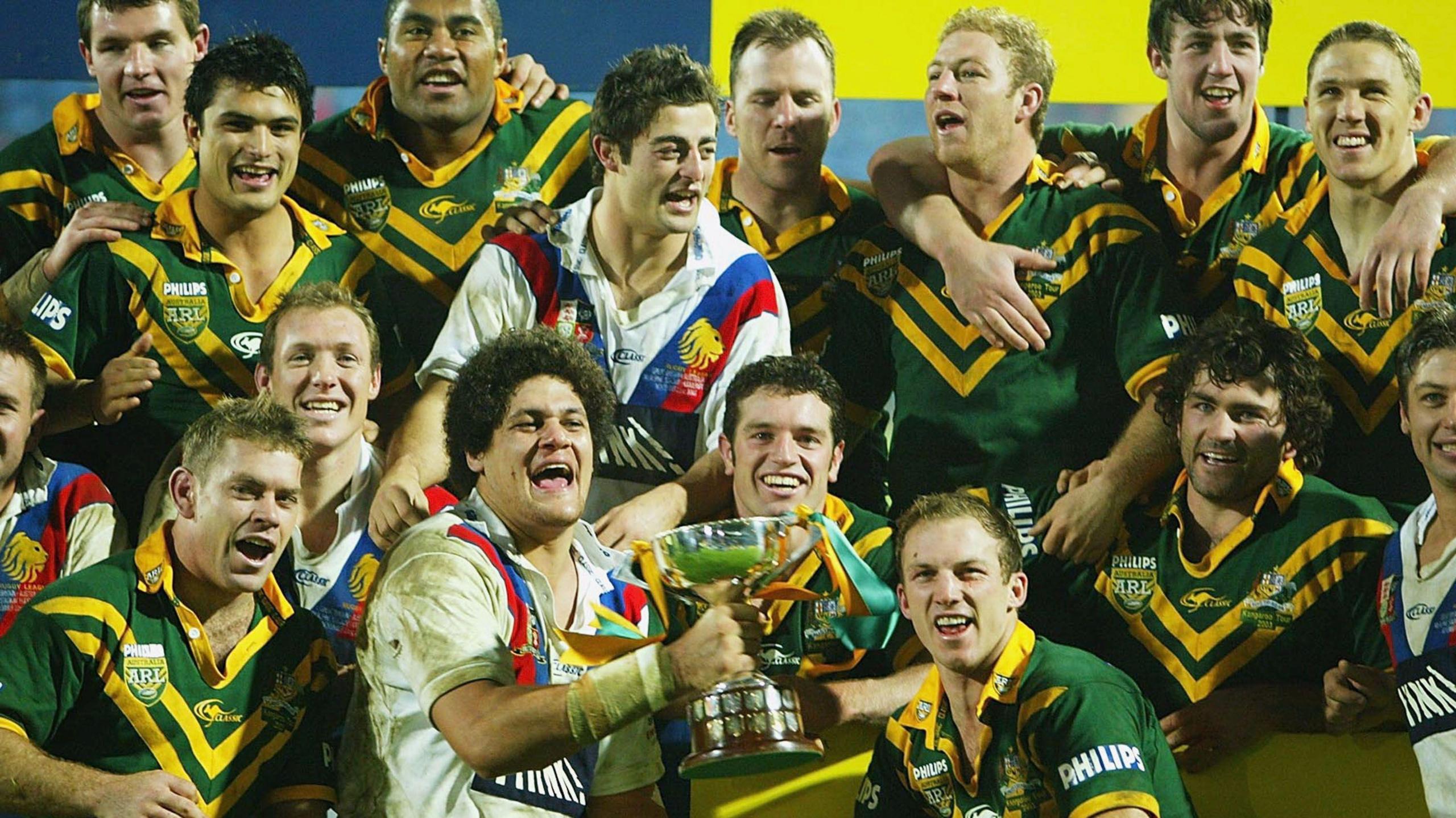 Getty Images
Getty ImagesThe Ashes takes its name and format from the cricket series of the same title, and has traditionally pitted Australia against Great Britain.
Unlike cricket’s Ashes, no actual ashes are involved – but that is not to say it is lacking in history or heritage.
Having first taken place in 1908, the series was contested 39 times until 2003, with Great Britain and Australia usually taking it in turns to host.
From the 39 series to date, Great Britain have won 19 and Australia 20. The Lions historically had great pedigree in the event, winning 24 of the 39 Tests to take place before 1945.
Since then, the momentum has shifted in favour of Australia.
Ominously for Shaun Wane’s England side, Australia won a record 13 consecutive Ashes series between 1973 and 2003.
In the most recent Ashes series, staged in 2003, the Kangaroos won 3-0, although they had to come from behind to win all three matches.
The 22 years it has taken to stage another Ashes series is the longest gap between series in its history.
Rugby League Ashes
25 October, 1 November, 8 November
Wembley, Hill Dickinson Stadium, AMT Headingley
Watch all three Tests live on BBC One, BBC iPlayer and the BBC Sport website and app
Why England and not Great Britain?
This year, Australia will be taking on England for the first time under the Ashes banner, having historically faced Great Britain.
Following the last series in 2003, Great Britain as an international entity was largely wound down from 2006, barring an ill-fated return in 2019.
That year culminated in a humiliating clean sweep of defeats, first by Tonga and then consecutive losses to New Zealand before a tour-ending loss to Papua New Guinea.
The introduction of the Tri-Nations and Four Nations tournaments, as well as England’s failure to reach the final of the 2021 Rugby League World Cup, means that opportunities to face Australia have been limited in the 22 years since a Darren Lockyer-captained side swept aside the Lions.
A series had been mooted to take place in 2020 but was delayed by the Covid pandemic and was eventually agreed for this year.
Why 22 years since last Ashes series?
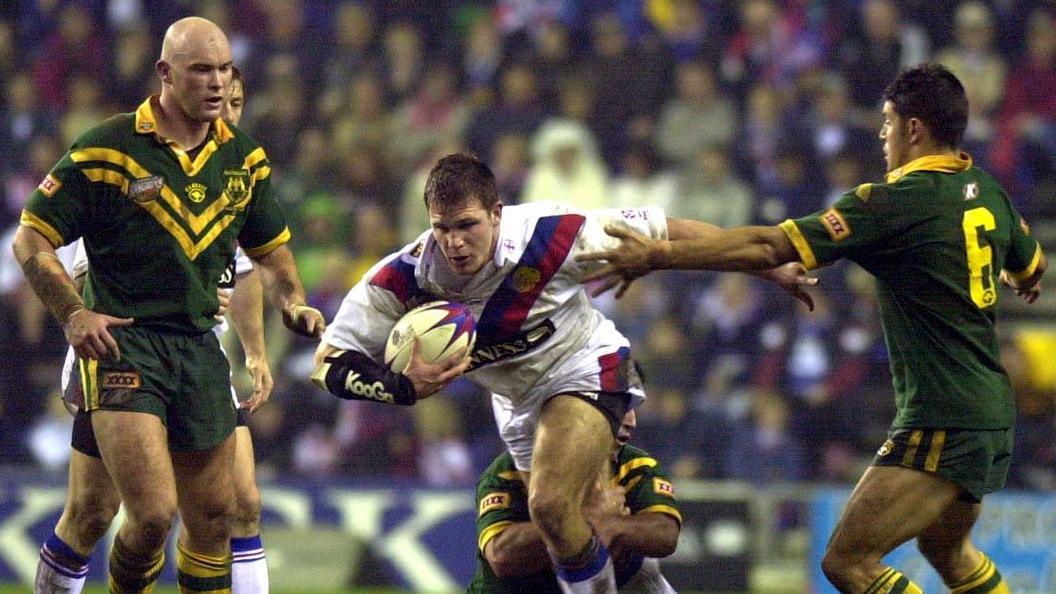 Getty Images
Getty ImagesIn short, for many years, the game had changed.
Appetite down under for international rugby league waned as the yearly State of Origin series, which pits representative players from New South Wales and Queensland against each other in a best-of-three competition, took precedence, along with the National Rugby League (NRL).
In recent times, however, international rugby league has enjoyed something of a revival.
Australia’s squad bonded three years ago on their way to winning the Covid-delayed 2021 Rugby League World Cup, reinstating their passion for the green and gold shirt.
Meanwhile, the Pacific Championships have emerged as a successful tournament involving the Kangaroos, New Zealand, Tonga and Samoa.
Those factors have led to Australia committing to a three-Test tour of England for the first time in a generation.
It is all the more impressive, given the intensity with which the NRL is played, that Australia have committed to travelling to these shores for a much-anticipated series.
This article is the latest from BBC Sport’s Ask Me Anything team.
What is Ask Me Anything?
Ask Me Anything is a service dedicated to answering your questions.
We want to reward your time by telling you things you do not know and reminding you of things you do.
The team will find out everything you need to know and be able to call upon a network of contacts including our experts and pundits.
We will be answering your questions from the heart of the BBC Sport newsroom, and going behind the scenes at some of the world’s biggest sporting events.
Our coverage will span the BBC Sport website, app, social media and YouTube accounts, plus BBC TV and radio.
More questions answered…
Get in touch
Send us your questions


